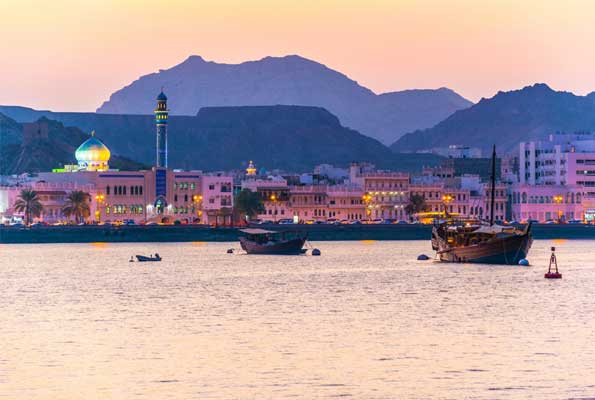As its economy shows signs of revival, Oman now plans to invest 2.5 billion rials (USD 6.5 billion) in its transport and logistics sector until 2025, stated the Sultanate’s Ministry of Transport, Communications and Information Technology.
As per the Oman News Agency, the above announcement was made during a series of workshops organised by the ministry in a bid to generate new investment opportunities in the country, along with enabling improvements to its logistics sector.
Talking in detail about the latest investment, Khamis Mohammed Al Shammakhi, the Undersecretary of the Ministry of Transport, Communications and Information Technology, stated that the goal behind the move was to increase government revenue in the sector by achieving 18 million rials in returns from land transport by 2025, apart from boosting employment opportunities in related sectors from 19% in 2023 to 21% in two years.
The move comes at a time when the International Monetary Fund (IMF) has predicted an economic rebound for the Gulf country, supported by higher hydrocarbon production and stronger non-hydrocarbon growth.
The nation’s economy surged 4.3% in 2022, driven by the hydrocarbon sector, before dropping to 2.1% in the first half of 2023 due to Opec+-related oil production cuts.
While IMF sees the growth figure to go down to 1.3% by the 2023 end, it noted that the non-hydrocarbon sector registered a growth acceleration of 2.7% in the January-June 2023 period, up from 1.2% in 2022, due to the Sultanate’s recovering agricultural and construction activities and robust services sector.
“The economic outlook remains favourable, fiscal and current account balances are projected to remain in surplus over the medium term albeit trending down along with oil prices,” said Cesar Serra, who led the IMF staff visit to Muscat.
“However, the outlook is subject to high uncertainty, due to oil price volatility, global economic and financial developments, and potential indirect spillovers from the ongoing conflict in Gaza”, he added further.
In fact, due to the reduced oil industry-related activities, Oman’s economy contracted by 9.5% in the second quarter of 2023. The total GDP for the three months to the end of June at current prices declined to about 10.1 billion Omani rials (USD 26.24 billion) compared to 11.1 billion rials during the same period in 2022.
The largest non-Opec producer in the Middle East, Oman now expects a budget deficit of 1.3 billion rials in 2023, or 3% of its economy, after achieving a surplus of 1.14 billion rials for 2022.
Oman has also launched a three-year fiscal stability programme to add momentum to its economic recovery from the COVID-driven slowdown, apart from supporting the overall development of the country’s financial sector.
The IMF now believes that the Sultanate’s banking sector is showing resilience and accelerating financial sector development will be the key to expanding access to finance and supporting diversification efforts.
IMF also praised the structural reform agenda under Oman’s Vision 2040 is also progressing, which, the global monetary body sees as a way to foster the country’s inclusive growth and job creation, apart from making the Sultanate’s economy resilient in the long run.
Oman’s Special Economic Zones (SEZs) and industrial cities are now witnessing a huge investment surge, reaching USD 43.16 billion in the first six months of 2023.
According to Oman News Agency, the Public Authority for Special Economic Zones and Free Zones attracted pioneering projects across various sectors due to the favourable investment climate.
Investments in existing industrial cities reached 7.3 billion rials (USD 19 billion), while the free zone in Salalah Free Zone attracted 4.5 billion rials, followed by Duqm SEZ (over 3.8 billion rials), Sohar Free Zone (570 million rials) and Al-Mazunah Free Zone (over 139 million rials).



